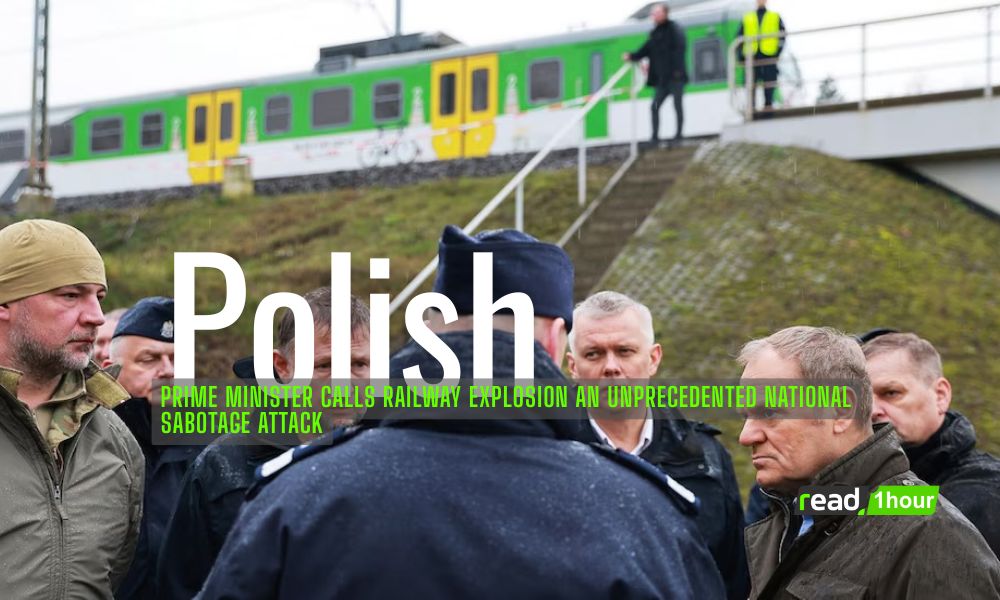Polish Prime Minister Calls Railway Explosion An Unprecedented National Sabotage Attack
Poland’s PM calls railway explosion unprecedented sabotage, prompting major investigation and heightened security across national transport networks.
Poland’s Prime Minister described a powerful railway explosion as an “unprecedented act of sabotage,” marking one of the most serious security incidents the nation has faced in recent years. The blast, which struck a major railway junction early Monday morning, disrupted transportation across the region and raised immediate concerns about national security and foreign interference.

According to officials, the explosion occurred near the central rail hub connecting Warsaw to several key industrial cities. Early investigations suggest that the blast was deliberate, involving sophisticated devices placed along the tracks. Authorities have not yet named any suspects, but the scale and precision of the attack have prompted investigators to consider both domestic extremist groups and potential foreign actors.
Prime Minister Marek Nowicki condemned the attack in a televised address, calling it a “direct assault on Poland’s stability and infrastructure.” He emphasized that the government would pursue those responsible “with full force,” vowing increased surveillance and heightened security at all major transportation hubs.
“This was not an accident. It was a calculated and coordinated operation designed to cripple our railway system and instill fear,” Nowicki said. “Poland will respond decisively.”
The explosion caused significant damage to rail lines and nearby equipment, halting dozens of passenger and cargo trains. Thousands of commuters were stranded as emergency teams worked to contain fires, secure the area, and begin repairs. No fatalities were reported, but several workers suffered injuries from the shockwave and debris.
The attack comes at a tense moment in Central Europe, where concerns about regional instability and hybrid warfare have been growing. Security analysts say Poland’s strategic role as a transportation gateway for European trade—and its strong support for Ukraine—makes it a potential target for adversarial nations seeking to disrupt European unity.
The National Security Bureau has deployed special investigators, including cybersecurity and counterterrorism units, to examine whether the attack was part of a larger coordinated effort. Early reports also suggest that railway communication systems experienced brief interference minutes before the blast, raising questions about possible digital sabotage.
European Union leaders expressed strong solidarity with Poland, calling the incident an attack on European infrastructure as a whole. The European Commission pledged technical and intelligence support to assist with the investigation and security reinforcement.
Meanwhile, Polish citizens are expressing both shock and resilience. Many commuters, though frustrated by delays, praised emergency responders for their rapid action. Social media platforms saw an outpouring of support for railway workers and calls for heightened national vigilance.
As repairs continue, authorities warn that disruptions may last several days. The government is urging the public to remain calm and rely on official updates as the investigation unfolds.
While the motive behind the explosion remains unclear, the Prime Minister’s message was unmistakable: Poland considers the attack a direct threat to national security—and it will not go unanswered.
